Issue 10 | February 2025


Hello
And welcome.
Dave Middleton, Executive Chair, amii
Welcome to the latest amii members’ newsletter.
I hope you are all well and that 2025 has started positively for you. The days are getting longer, Spring is on the way and here is the latest amii newsletter! What more could you ask for.
We are planning our next Spring Health & Wellbeing Summit and will incorporate the AGM at the start of the day. We recently opened the delegate registration for this and confirmed our Key Note Speaker, Matt Lindley. The full agenda has yet to be released, but in addition to including the AGM agenda sessions by amii Executive Treasurer Paul Swanson of Howden Employee Benefits & Wellbeing and me, we are delighted to be able to include the long-awaited talk from Dermie AI’s Yasmin Greenaway, who will provide an insight into how AI is impacting the Health and Wellbeing space. Our compliance partner, UKGI, will also join us for a panel discussion, and you are invited to send your questions to us for this session ahead of the day. Our amii Executive Member, Liam Kennedy of Vitality, will provide a project update on the amii training offering. Be sure to keep an eye out for future updates on our agenda.
In recognition of World Cancer Day, our newsletter includes an important article and resources from Reframe Cancer to remind us of some of the key issues cancer patients are dealing with daily and that there is more that needs to be done to support patients on their cancer pathway.
For those who could not make it to our November Summit, we have included some highlights from the day and shared a few short clips of the day’s reflections from attendees.
As the FCA recently produced three publications outlining its findings about implementing Consumer Duty, our compliance partner, UKGI, has provided some context around those publications. Ryan Hopkins, Chief Impact Officer at JAAQ, shares his thoughts on rethinking workplace wellbeing. I recently enjoyed exploring this in more detail with Ryan, so look out for my next podcast!
In our final articles, maximising your amii member benefits, we hear from amii members as they share their views on what being an amii member means to their business, we detail each benefit and invite you to our next webinar to hear about our newest benefit.
I hope you enjoy reading this newsletter, and I look forward to seeing you in person on May 21st in Solihull for our Spring Summit.
Newsletter Contents.
4C Platform


World Cancer Day.
An important chance to remind ourselves of some of the key issues cancer patients are dealing with.
Mark Stephenson, CEO, Reframe Cancer
World Cancer Day this year is an important chance to remind ourselves of some of the key issues cancer patients are dealing with daily, and whilst we have come far when it comes to treatment and positive patient outcomes, there is still much more that needs to be done to support patients on their cancer pathway.
More than 300,000 cancer patients in the UK won’t start treatment on time over the next five years if the government doesn’t improve cancer waiting times before the next election. These delays in treatment currently mean the UK has one of the worst mortality rates in the world. With cancer rates on the rise, especially with those under 50 and 25-49 year olds growing at twice the rate of any other age group), it’s a real possibility that waiting lists and cancer mortality will get worse before they improve.
We know from speaking with advisers, insurers, clinicians and cancer patients themselves that waiting for a diagnosis and treatment is mentally incredibly hard. This period of uncertainty and the fear of the unknown is very powerful, and it can be hard to know who to tell or where to access help during this early period of waiting for news. The waits are not limited to the NHS – private hospitals and treatment centres are also struggling with the increased demand.
The impact of covid is also still being felt. Generic cancer symptoms, such as ongoing fatigue and pain can be confused with Long Covid. We’ve also have seen growth in certain cancers like bowel in younger people. Face to face GP appointments have largely been replaced with virtual meetings or telephone check ins, so people can fall out of the habit of going to their GP with problems that they think could be small. This means early signs are easily missed or mistaken for something more trivial. This delay in diagnosis can then have a huge impact in the long run. This is why screening, symptom awareness and simply promoting a supportive culture to cancer can make such a difference.
The NHS, private treatment centres, as well as the insurance industry have such an important role to play. We know from our own research in The Employee Experience Report: Living and Working with Cancer that 30% of cancer patients use a combination of NHS and private support when on their cancer journey, and certainly when it comes to getting a diagnosis, insurance can offer a quicker response.

GP apps or phoneline support can help people to seek diagnosis sooner. For many this can feel easier and mean you aren’t put off by the thought of “bothering” your GP or waiting weeks for an appointment. This in itself can really help with early intervention, so these services are really important, especially given almost half (45.5%) of all cancer cases are diagnosed at stage 3 and 4 and not enough at the earlier stages when better outcomes are more likely.
The role of the employer should not be underestimated when it comes to helping educate and spread information and awareness about cancer. Especially, as highlighted, so many more people under 50 are getting cancer, with a huge spike in bowel cancer in particular in much younger people. Talking, and educating can help play an important role in prevention and early intervention.
There is still work to be done between employers, insurers and advisers to find the right messages that make a bigger impact with employees. We’ve seen great strides in mental health, but much less progress in cancer awareness and openness in the workplace. Sharing expertise and insights, prioritising clear communication, empathy and flexibility is all really important here.
Our The Employee Experience Report: Living and Working with Cancer also showed us that over half (55%) of workers didn’t tell their employer about their illness until after they had a cancer diagnosis, whilst over a quarter (28%) of employees shy away from talking to colleagues about their illness altogether. In 2025 these numbers are really disappointing as help in the earlier stages pre-treatment can make such a significant difference. This highlights why fostering an open workplace culture is so important. It will also encourage more employees to discuss symptoms and share experiences, all of this is beneficial and can only benefit both employers and employees.
Employee benefits and support is also an important component of supporting cancer patients at work, from both an employer and employee perspective. Seven in ten (70%) employees with cancer who felt well supported by their employee benefits, returned to work feeling like a ‘changed person’ with more empathy, better able to manage stress and had a greater appreciation for life. This in itself highlights the importance of providing the right support. Their resilience aids better decisions. This is another great reason for employers and others to take care of their people – and well beyond private medical insurance which can be very useful but starts and stops too promptly for most.
However, an important point to highlight is that in the workplace where multiple benefits from a range of providers are offered, there can be confusion over what services do and, in some cases, there are duplication of services – there may be several providers offering virtual GP access for example. On the other hand, while access to both is of course preferable, there can be gaps between the private and state process that aren’t being joined up.
So this World Cancer Day, whilst it is important to remember we have made great strides in supporting cancer patients on their cancer pathways, there is still so much more to be done in the UK. From employer support and benefits, better communication and understanding more about the journey cancer patients are on and the pressures they face, 2025 is hopefully the year where we can continue to take greater steps to making this happen.
Have you registered to join the for Members Only section of our website?
The for Members Only section of our site provides a wealth of content for members, as well as access to all the benefits that being a member of amii provides. If you haven’t done so already, please do register to take advantage of everything your membership offers. You can do so by following the link below.
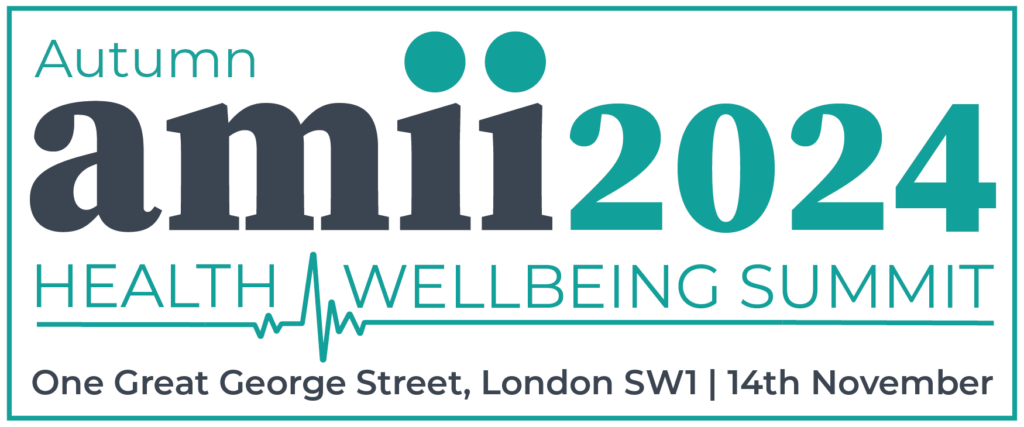
The highlights from our November Summit.
A Day of Insights, Innovation, and Inspiration!
If you missed the amii Autumn Health & Wellbeing Summit 2024, you missed a game-changing day packed with invaluable industry insights, powerful discussions, and networking opportunities that could shape the future of private healthcare. But don’t worry—we’ve got the highlights right here to bring the energy and excitement to you!
The day kicked off with a warm welcome from Executive Chair Dave Middleton, who updated members on our key achievements for 2024 and plans for 2025, setting the stage for what was to be an insightful and thought-provoking event. Professor Gordon Wishart then took the spotlight, diving into the pressing challenges in cancer care and how the industry must navigate an evolving landscape. His talk was an eye-opener, underscoring the urgent need for innovation and adaptability in healthcare.
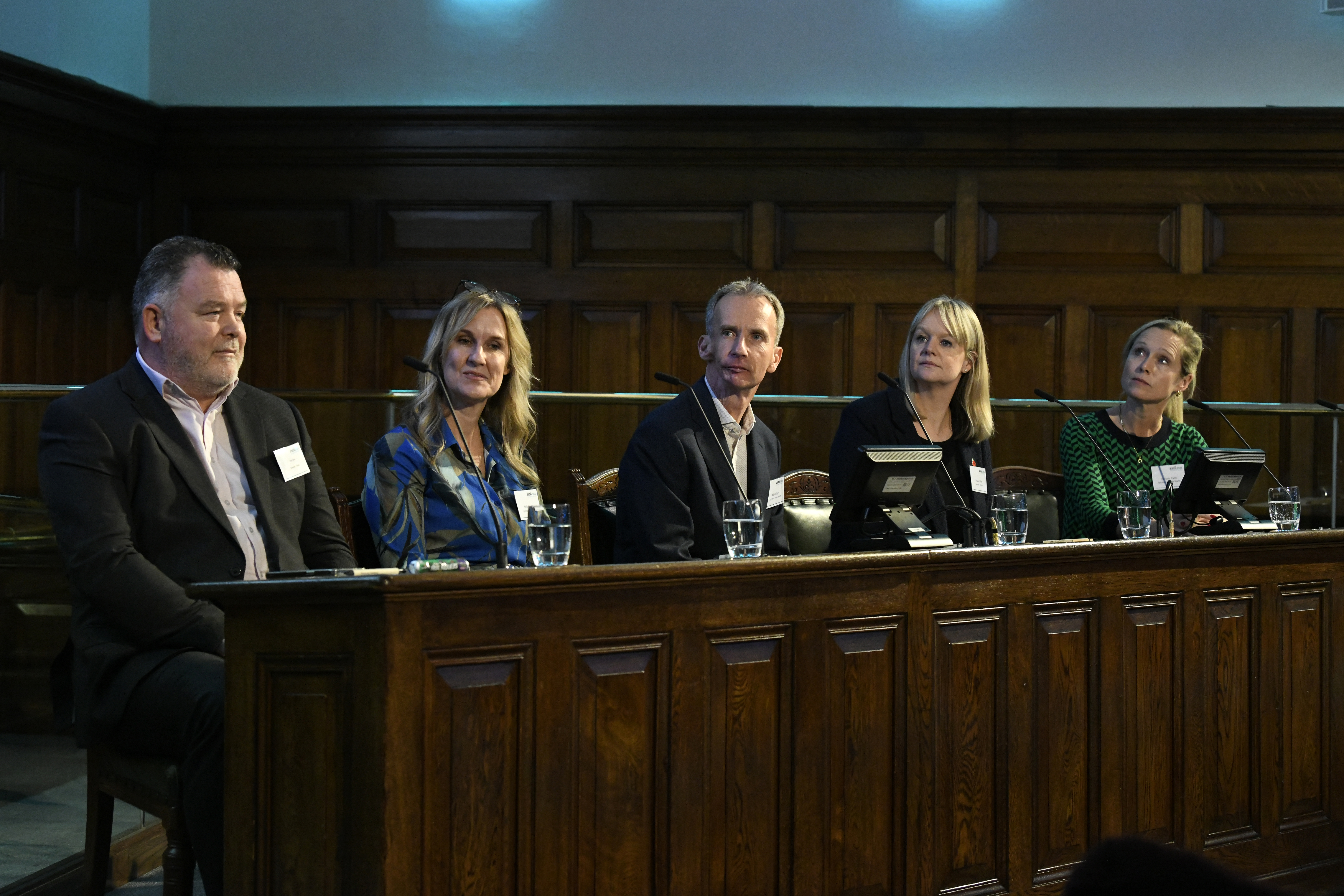
A powerhouse panel discussion featuring industry leaders from Bupa, UNUM, Vitality, Aviva, and Axa Health tackled the economic landscape’s impact on private healthcare. With expert insights from Claire Ginnelly, the session explored shifting market trends, challenges, and opportunities that businesses must navigate to stay ahead.
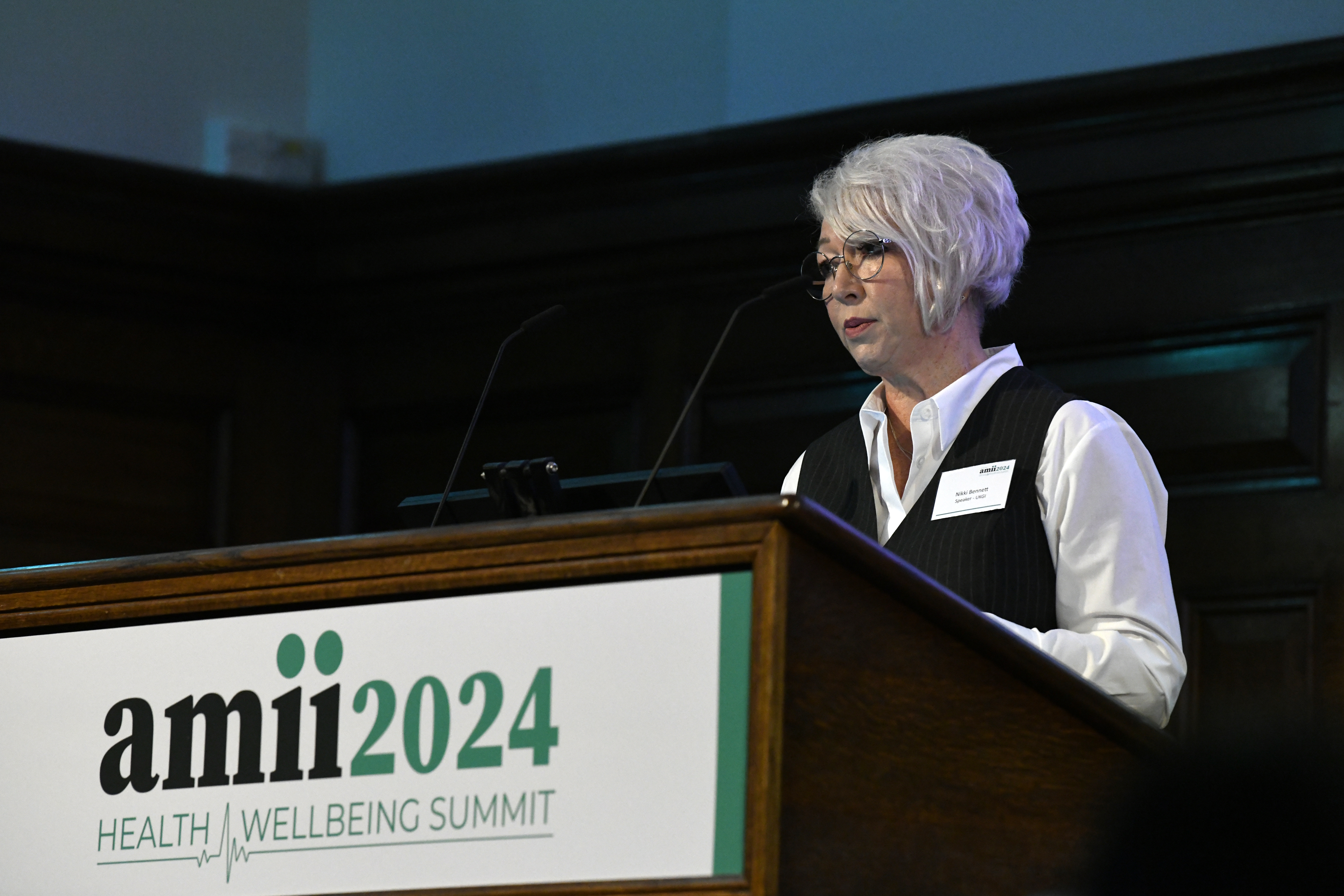
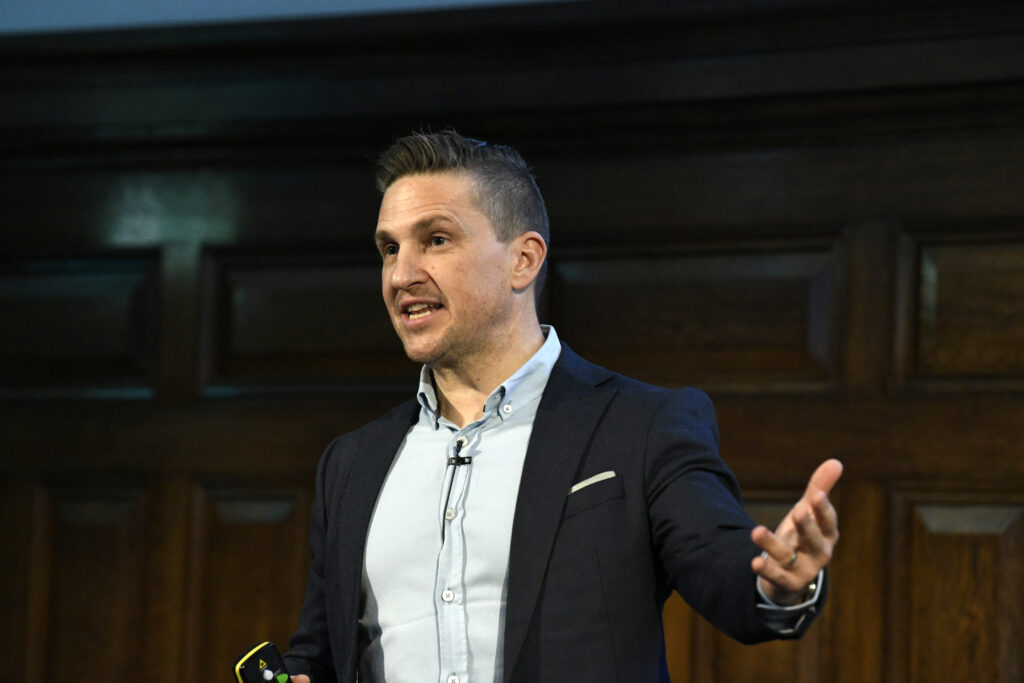
Closing the day on an inspirational note, former Premier League footballer turned international speaker Paul McVeigh captivated the audience with his talk on mindset. Drawing from his sports and business career, he shared actionable strategies to enhance performance, resilience, and success in both professional and personal life.


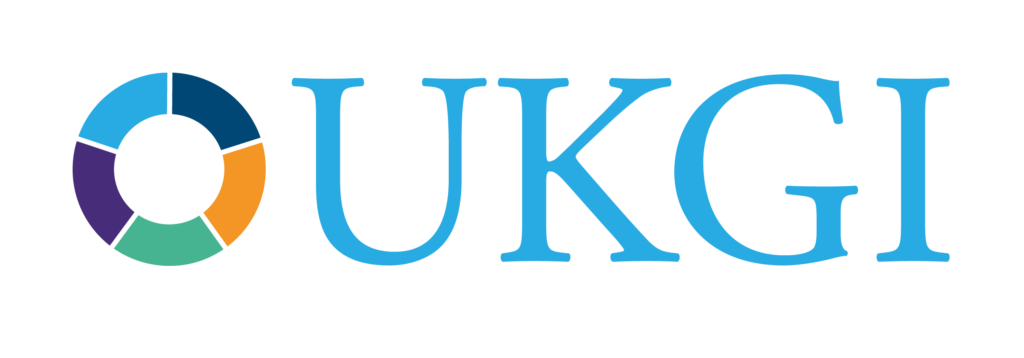
A focus on
FCA’s Consumer Duty reports and future plans.
Anthony McCloskey, Compliance Consultant, UKGI
The FCA published two reports demonstrating how it is using the data it collects to highlight good and poor practices across several sectors, including insurance, with a particular focus on governance and complaints. The firms sampled were of varying sizes, but included smaller firms, some of which had less than ten employees. The driver behind the analysis was to draw out how firms were identifying the possibility of harm, and therefore how well they are set up to comply with the Consumer Duty. In addition to the two reports, the third publication outlined the FCA’s areas of focus for the remainder of its 2024/25 financial year (so up to the end of March 2025).
The main theme running through all the findings in the two reports is the underlying evidence, or MI (or lack of it) which firms should be producing to help show how their policies and procedures underpin the outcomes customers are receiving. The FCA noted that the quality of the data firms were using was key to gaining an understanding of the outcomes customers were actually seeing. In some cases, they found that the data was not sufficiently granular to allow it to be interrogated properly, which can lead to Boards adopting a “tick-box” approach to stating they are compliant with the Duty. The FCA outlined that it is preferable for Boards to be provided with appropriate levels of detail, or a commentary on what the data is saying, to allow them to consider where the real problems lie. Boards should be able to provide appropriate challenge back to the business, and make sure actions are taken to address any inherent or systemic issues which the data has identified. The FCA also commented that meetings should be minuted (to provide a proper audit trail) and action points agreed with named individuals, who should then be held accountable for making sure changes are implemented. Additionally, the FCA noted that good practice is to monitor the impact of any changes within the business against the outcomes customers receive.
This point is particularly relevant when firms are considering their target markets and what firms are doing to consider whether different types of customers (including vulnerable customers) may be receiving inconsistent outcomes. Linking in the FCA’s findings from firms’ complaints processes, it suggested that, when looking at the target market, firms must consider where specific customer vulnerabilities may lie, and offer more flexible solutions to those who may have more particular needs. If the findings from a complaint, or the root cause analysis, suggest that the firm’s procedures need improving, good practice would be to change that process and ensure the outcomes were carefully monitored.

In terms of the quality of management reports, the FCA noted that where firms involved both the 2nd and 3rd lines of defence, and where the reports also included a range of departmental updates, the more likely it would be that the firm would have sufficient evidence to draw its conclusions as to how well it has embedded the Duty. Reports which were solely constructed by Compliance functions risked missing the scrutiny of key stakeholders and resulted in Boards being prevented from taking ownership of identified issues or risks. As the FCA noted that each of the firm’s regular management or Board reports would likely support the construction of the annual Consumer Duty Board Report, it is important that the firm’s MI is sought from all areas of the business, and that the findings are presented to enable the Board to draw its conclusions, if the evidence shows that customers are not seeing the expected outcomes.
This raises challenges around the firm’s culture. Those firms which had set a positive “tone from the top” generally had a good commitment to embracing and embedding the Duty and had set out their strategy to focus on outcomes across the business. They evidenced this through documenting details around ownership and accountability for their internal processes, for example naming those Senior Managers and other individuals who were responsible for complaints, as well as those who undertook the root cause analysis – continuing to ask “why” as many times as needed to get to the underlying issue. Firms which linked these accountabilities to their Risk Management Frameworks were also able to evidence that their systems and controls were effective, whereby regular analysis of the outcomes of complaint investigations enabled management and the Board to focus directly on issues which were causing harm to customers.
In terms of the FCA’s upcoming work, it will continue to focus on the Consumer Duty and will continue to share more information on good and poor practice so that its expectations can benefit the industry and drive better outcomes. As it said when Consumer Duty was introduced, the FCA’s greatest need is being able to act to address harm (or potential harm) quickly, based on the size or urgency of that harm. We can therefore expect to see further interventions and dialogue with firms.
The FCA will continue to ask for more data to help improve its understanding of the way the Consumer Duty is being embedded. It will be assessing how firms are implementing and complying with the Duty and, will share good practice where it identifies it. Likewise, where there are areas for improvement, the FCA will remind firms of its expectations and state where firms may need to accelerate progress. This is reflected in its thematic work on Protection markets, with a planned market study will get underway early in 2025.
In addition, the FCA will focus on claims handling arrangements, seeking to understand that insurers and firms have adequate systems, controls, governance and oversight structures to drive good consumer outcomes. The FCA aims to publish its findings on this in Q2 2025.
As part of meeting its secondary objective to facilitate international competitiveness and growth, the FCA is currently reviewing its wider rules to see how it can use the Consumer Duty to simplify some of its more prescriptive, or duplicated, requirements. Its recent letter to the Government has set some examples of this. For example, now that the Duty is in place, there may no longer be a need for a Consumer Duty Champion. There is clearly a commitment to simplifying some of the rules to help firms achieve good outcomes for their customers, as reducing the complexity of the FCA Handbook could lower costs, encourage innovation and help support the risk appetite needed to support growth. The clear conflict between this aim and the prevention of consumer harm, though, will need to be carefully managed.
UKGI can assist firms in understanding the FCA’s Consumer Duty requirements, and how to be prepared for its ongoing focus on key Consumer Duty themes. If you have any questions about, or need any support in relation to, your Consumer Duty compliance, we will be happy to discuss how we can assist.

Rethinking Workplace Wellbeing.
From bikes and bananas to the bottom line.
Ryan Hopkins, Chief Impact Officer, JAAQ
As someone who has experienced depression and bulimia as a young man and received a late autism diagnosis, I’ve seen firsthand how traditional workplace wellbeing initiatives often miss the mark. And it’s not just me—75% of employees believe wellbeing has worsened over the past year, while 75% of CEOs think the opposite. I would too if I had spent £7.5 billion on insured benefits and £580 million on wellbeing initiatives.
Through my role as Chief Impact Officer at JAAQ (another of those initiatives), transforming digital engagement at Bupa, creating/leading the wellbeing consultancy at Deloitte and my journey writing “52 Weeks of Wellbeing” (now a global bestseller I am proud to say), I’ve come to understand that we need to fundamentally reshape our approach to workplace wellbeing.a
Let me share something that might surprise you: it’s not actually an organisation’s responsibility to improve happiness. Instead, their responsibility is not to worsen it. This subtle shift in thinking changes everything about how we approach workplace wellbeing. Because there is no lack of effort, but the impact is questionable at best.
The data tells us something fascinating: 76% of people experience mild or no symptoms of mental health issues (according to the NICE framework); yet the vast majority of interventions are designed for the 24% (which of course is right, but we are missing 76% completely). It’s no wonder we see such low utilisation rates of wellbeing programs, we aren’t meeting people where they are. In my work, I’ve found that starting with robust analytics to understand why people leave organisations and what drives absenteeism is crucial (plus a lot more, but I am limited on wordcount).
I’ve seen this approach work firsthand. At JAAQ we are very proud to have worked closely with Natwest to reduce mental health absence by 6.9% – their first decrease in seven years. They achieved this by analysing their data (from what questions were being asked on JAAQ; as well as baselining/identifying mental health absence as a priority), identifying burnout as a primary concern, and then delivering targeted psychoeducation through JAAQ to various areas of the organisation.
Sometimes, the most effective interventions are surprisingly simple. I love the example from Shopify, where they implemented a meeting cost calculator. Imagine seeing that your 45-minute meeting costs £3,500 – it makes you think twice about whether that meeting could be an email! This small piece of additional functionality added into the Google Tech Stack helped colleagues to cut meetings by 20% in less than 6 months. Would you rather another webinar or 20% less meetings? I know what I’d choose.
The hybrid working challenge is particularly close to my heart. When working with a 10K headcount Fintech, I found that new employees in predominantly remote settings were three times more likely to leave within their first six months. However, forcing everyone back to the office isn’t the answer – a recent S&P500 study found that these mandates only reduce job satisfaction without improving performance. The key is finding what I call “the sweet spot between belonging and flexibility.” Hint Hint, one size fits all is not the answer here and different roles have different in person requirements to optimise performance.
For smaller organisations, I often recommend starting with simple but effective approaches. Consider implementing “pre-exit interviews” where employees can discuss their concerns before deciding to leave or create “manuals of me” where team members document their working preferences (if you don’t tell anyone you’re dyslexic, how are they meant to know/help?). One of my favourite initiatives is “Meeting Armageddon” – delete all standing meetings and ensure that all new meetings have a clear agenda, objectives, roles, outcomes and finish 5/10 mins before the 30/60 min mark. If not, ‘decline’.
One of the most concerning patterns I’ve observed is what Linda Stone coined “email apnea” – the shallow breathing we experience while staring at screens as a result of constant low anxiety – for fear of the ping of another teams’ messages. So you knew your emails ere a nuisance, but you didn’t know they were suffocating you did they? When you combine this with the fact that the average digital worker checks their email every six minutes (while it takes 25 minutes to achieve a focused state), you can see why configuring space in the digital environment as absolutely paramount.
I once worked with an organisation whose average workweek on teams was 49 hours. We focused on creating a better digital way of working and launched a series of microinterventions and were able to bring this down by 5 hours per person per week (saving 2.4M hours for the business), which subsequently reduced voluntary attrition by 3% – saving $10M+.
Looking ahead, I see three major trends shaping our industry. First, we’re seeing the emergence of narrow AI solutions that augment human care; rather than the chatbots that were purported to replace human care- see here. Second, there’s an increased focus on analytics to understand the wellbeing business case (which is between £51-130B depending whether you listen to Deloitte or McKinsey) and to accurately measure the effectiveness of wellbeing initiatives. Finally, we’re expanding mental health conversations beyond the binary anxiety and depression focus to include topics like addiction, which affects 45% of the population either directly or indirectly. Would you know how to have a chat with a team member who has a gambling addition, what about porn? An almost impossible conversation for any Manager. This is just one example – eating disorders, perimenopause, body dysmorphic disorder and so many more areas to be addressed – check out JAAQ at Work to see how we are tackling 100+ topics.
Through my work at JAAQ, Bupa & Deloitte, I’ve learned that workplace wellbeing isn’t about adding more initiatives – it’s about creating an environment where people can work in ways that suit them best and prioritise what they need to be their best self – whatever that looks like. With digital workers spending 57% of their day responding to instant messages, emails and sitting on calls, our IT departments should be central to wellbeing strategies. However, they’re often left out of the conversation entirely. If you don’t have 5 mins this side of Xmas, there is 0% chance you will be able to focus on any wellbeing initiative, as good as it is!
The future of workplace wellbeing lies not in adding more programs but in removing barriers that prevent people from working in ways that suit them best. It’s about creating spaces where diverse individuals can thrive, supported by technology and analytics that help us understand what really works. That’s how we’ll create workplaces that truly support wellbeing for everyone (and begin to address the £51-130B opportunity in front of us).

Maximise
Your amii Membership Benefits.
Your membership provides access to a range of exclusive resources designed to support your business growth, professional development, and success in the industry—all at no additional cost to your annual membership fee. Ensure you are making the most of these opportunities! Before you read all about the benefits, hear what our members think of the benefits we offer.

As a member, you can feature your firm in the “Find-An-Expert” and “Ask-An-Expert” sections of the amii website. While amii is not a lead generation platform, these features enable potential clients and businesses to discover your services, providing valuable exposure and opportunities to grow your customer base.

Compliance is essential in the industry, and amii members receive invaluable support from UKGI, a leading compliance consultancy. Members gain access to:
- Regular regulatory updates via newsletters, bulletins and webinars.
- Half-yearly compliance updates at amii conferences and events.
- Free access to UKGI’s experts for compliance queries and concerns. If in-depth support is required, UKGI Limited offers additional services at a discounted rate, ensuring compliance is an enabler, not a blocker, to your business.

Managing a business involves legal, HR, tax, and health & safety considerations. AMII members benefit from:
- A dedicated telephone advice line for expert guidance.
- Free access to 750+ downloadable document templates via the Quest portal. These resources save time and effort, helping you manage your business efficiently and effectively.

amii’s dynamic events program keeps members informed and connected.
- Annual Conferences: The Health & Wellbeing Summit in autumn and AGM in spring feature expert speakers discussing industry trends and emerging healthcare topics.
- Educational Events: Tailored sessions, such as “An Introduction to Healthcare,” support members new to the industry.
- Networking Opportunities: Engage with like-minded professionals and industry leaders to share knowledge and build relationships. Most events are free or heavily subsidized, making them an invaluable membership perk.





